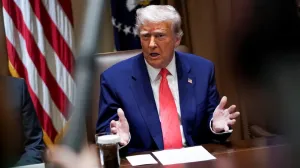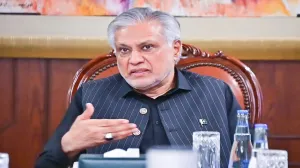Budget 2018: Standard deduction has made a comeback for salaried employees. It was a long standing demand and the Modi government reintroduced the standard deduction for individuals in Union Budget 2018. The salaried will now be able to claim a standard deduction of Rs 40,000 from their income. However, this benefit does not come without a cost. They will have to forego their exemptions on account of medical reimbursement and transport allowance. While Rs 15000 could be claimed under Medical Reimbursement, Rs 19,200 could be deducted under Transport Allowance. The salaried will therefore be able to claim only an additional deduction of Rs 5800.
Earlier all eyes were on Finance Minister Arun Jaitley as he was expected to provide some sops to the salaried class in his final budget before the 2019 polls. One of these much-expected sops was standard deduction. It may be noted that standard deduction for the salaried class under Section 16 of the Income Tax Act was introduced in India in the year 1974-75, but was withdrawn in 2006 by P. Chidambaram on the grounds that there was an equivalent increase in the basic exemption limit and 80C deductions. Experts have always felt that there was a case for reintroduction in Budget 2018. The withdrawal of standard deduction in 2006 was made as part of the restructuring of the tax rates apparently on the assumption that standard deduction is an allowance rather than a deduction on account of the expenditure incurred by an employee in the performance of his duties for which he gets paid by way of salary.
Also read: Budget 2018: Modi govt to give more Income Tax relief to people?
It is pertinent to note that that up to the assessment year 1974-75, the Income-Tax Act had a provision for allowing to the salaried persons deductions for purchase of books, car maintenance etc. incurred wholly, exclusively and necessarily for the purpose of employment. From 1975-76, a composite deduction at certain percentage of salary (changed from time to time) was introduced. Thus, the standard deduction permissible under Section 16 of the I-T Act till Finance Act 2005 was intended to cover the expenditure incurred for the purpose of employment and didn’t constitute a personal allowance.
Why there was a case for bringing standard deduction back in Budget 2018?
Before the removal in 2006, the rates of standard deduction were as follows:
Income Level | Quantum of Standard Deduction |
Up to Rs 5 lakh | 40% or Rs 30,000 (whichever is less) |
Income above Rs 5 lakh | Rs 20,000 |
Budget 2018: Experts’ take on standard deduction
According to tax experts, reintroduction of standard deduction has been a long-pending demand of salaried individuals in India. It is also desirable to bring in parity between individuals carrying on business and those in employment.
Watch video: 5 blockbuster income tax moves to expect in Budget 2018
That is because “an individual carrying on business or profession is eligible to claim deduction for expenses incurred towards his business. These include fuel and conveyance expenses, depreciation on car and motor bike, expenses incurred towards subscription of books & periodicals, attending seminars etc. In contrast, an individual pursuing an employment is not eligible to claim any expenses except for some relief towards conveyance allowance by his employer. The fact is that individuals in employment do need to incur expense to keep them updated with the latest developments and meet the requirements of their employment. Therefore, to bring in parity, a standard deduction should be allowed to individuals carrying on employment,” says Vikas Vasal, National Leader-Tax, Grant Thornton in India.
Karan Batra, Founder & CEO of CharteredClub.com, says that currently, there are several allowances allowed to salaried employees. However, these allowances are not comprehensive in nature and don’t cover all types of expenses incurred by the salaried employee.
“There are certain expenses which if incurred by a business/ professional can be claimed as an expense, but if incurred by a salaried employee cannot be claimed as a deduction. For example, salary paid to driver, expense incurred for upgrading a skill etc. Standard deduction is also allowed to the employees in several other countries such as Malaysia, Indonesia, Germany, the UK, France, Japan, Thailand, Singapore etc. and, thus, should be reintroduced in India as well through the upcoming Union Budget,” Batra says.
However, will FM Arun Jaitley do this in the Budget 2018? That is yet to be seen!








